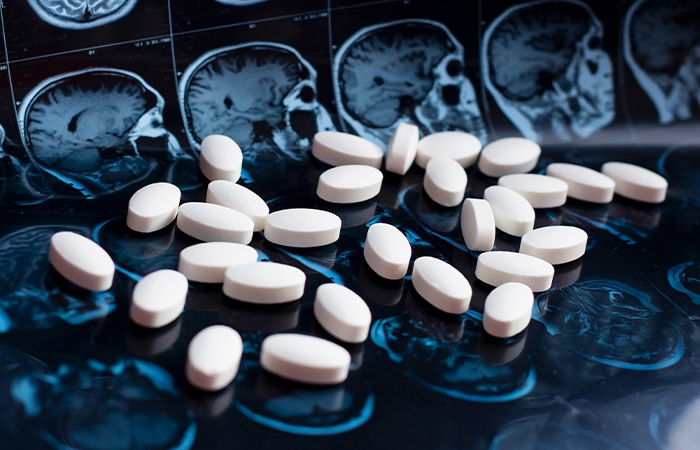Vitamins and Minerals That Boost Brain Health

Introduction
Your brain is your body’s most essential organ, responsible for controlling every thought, movement, and sensation. It’s a powerhouse that requires the right fuel to function at its best. Just like a well-maintained car runs smoothly with high-quality fuel, your brain thrives when nourished with essential vitamins and minerals. In this article, we’ll explore the vital vitamins and minerals that play a crucial role in boosting brain health.
Essential Vitamins and Minerals for Brain Health
Vitamin B Complex
The B-vitamins are a group of eight water-soluble vitamins, each with its own unique role in brain function:
– B1 (Thiamine): Thiamine helps convert glucose into energy, which is essential for brain cells to function optimally. A deficiency in thiamine can lead to memory problems and cognitive decline.
– B2 (Riboflavin): Riboflavin supports the production of antioxidants that protect brain cells from oxidative stress. It’s also involved in energy production.
– B3 (Niacin): Niacin supports overall brain health by improving blood flow, reducing inflammation, and aiding in DNA repair within brain cells.
– B5 (Pantothenic Acid): Pantothenic acid is crucial for the synthesis of acetylcholine, a neurotransmitter associated with memory and learning.
– B6 (Pyridoxine): Pyridoxine helps in the production of serotonin and dopamine, two neurotransmitters that play a significant role in mood regulation and cognitive function.
– B7 (Biotin): Biotin is involved in energy metabolism and supports healthy brain function indirectly by ensuring the body has the energy it needs.
– B9 (Folate): Folate is essential for DNA synthesis and repair in the brain. It also plays a critical role in the production of neurotransmitters.
– B12 (Cobalamin): B12 is crucial for the formation of myelin, a protective layer around nerve fibers. It also helps maintain healthy brain cells and cognitive function.
Vitamin D
Vitamin D is known as the “sunshine vitamin” because your skin can produce it when exposed to sunlight. It plays a vital role in brain health by:
– Supporting Neurotransmitter Production: Vitamin D receptors are found throughout the brain, indicating its importance in regulating neurotransmitters like serotonin, which is essential for mood regulation.
– Reducing Inflammation: Adequate vitamin D levels can help reduce inflammation in the brain, which is associated with cognitive decline.
– Neuroprotection: Vitamin D may protect brain cells from damage and promote the production of neurotrophic factors, which support neuron survival and growth.
Omega-3 Fatty Acids
While not a vitamin or mineral, omega-3 fatty acids, particularly EPA (eicosapentaenoic acid) and DHA (docosahexaenoic acid), are essential for brain health. These fatty acids are found in fatty fish like salmon, walnuts, and flaxseeds. They benefit brain health by:
– Supporting Brain Structure: DHA, in particular, is a major component of brain cell membranes, essential for optimal brain function.
– Reducing Inflammation: Omega-3s have anti-inflammatory properties, which can protect brain cells from damage.
– Enhancing Brain Plasticity: These fatty acids promote synaptic plasticity, which is crucial for learning and memory.
Vitamin E
Vitamin E is a powerful antioxidant that helps protect brain cells from oxidative damage. It’s particularly important as we age, as oxidative stress is a significant contributor to cognitive decline and neurodegenerative diseases. Nuts, seeds, and leafy greens are excellent sources of vitamin E.
Magnesium
Magnesium is an essential mineral that supports brain health in several ways:
– Regulating Neurotransmitters: Magnesium helps regulate neurotransmitters like serotonin, which can have a profound impact on mood and cognitive function.
– Reducing Stress: This mineral has a calming effect on the brain, helping to reduce stress and anxiety, which can impair cognitive function.
– Enhancing Sleep Quality: Magnesium can improve sleep quality, allowing the brain to rest and recover more effectively.
Iron
Iron is vital for maintaining healthy brain function because it carries oxygen to brain cells. Without sufficient iron, the brain can’t function optimally, leading to symptoms like fatigue and poor concentration. Lean meats, beans, and leafy greens are excellent sources of iron.
Zinc
Zinc is another essential mineral that plays a role in brain health by:
– Supporting Neurotransmitters: Zinc is involved in the production and regulation of neurotransmitters, including dopamine and serotonin.
– Enhancing Memory and Learning: It’s crucial for the formation of long-term memories and cognitive function.
Conclusion
Your brain is a remarkable organ, and it requires a balanced supply of essential vitamins and minerals to function at its best. A diet rich in B-vitamins, vitamin D, omega-3 fatty acids, vitamin E, magnesium, iron, and zinc can help support brain health and reduce the risk of cognitive decline. So, nourish your mind with the right nutrients, and you’ll be on your way to a sharper, healthier you.










